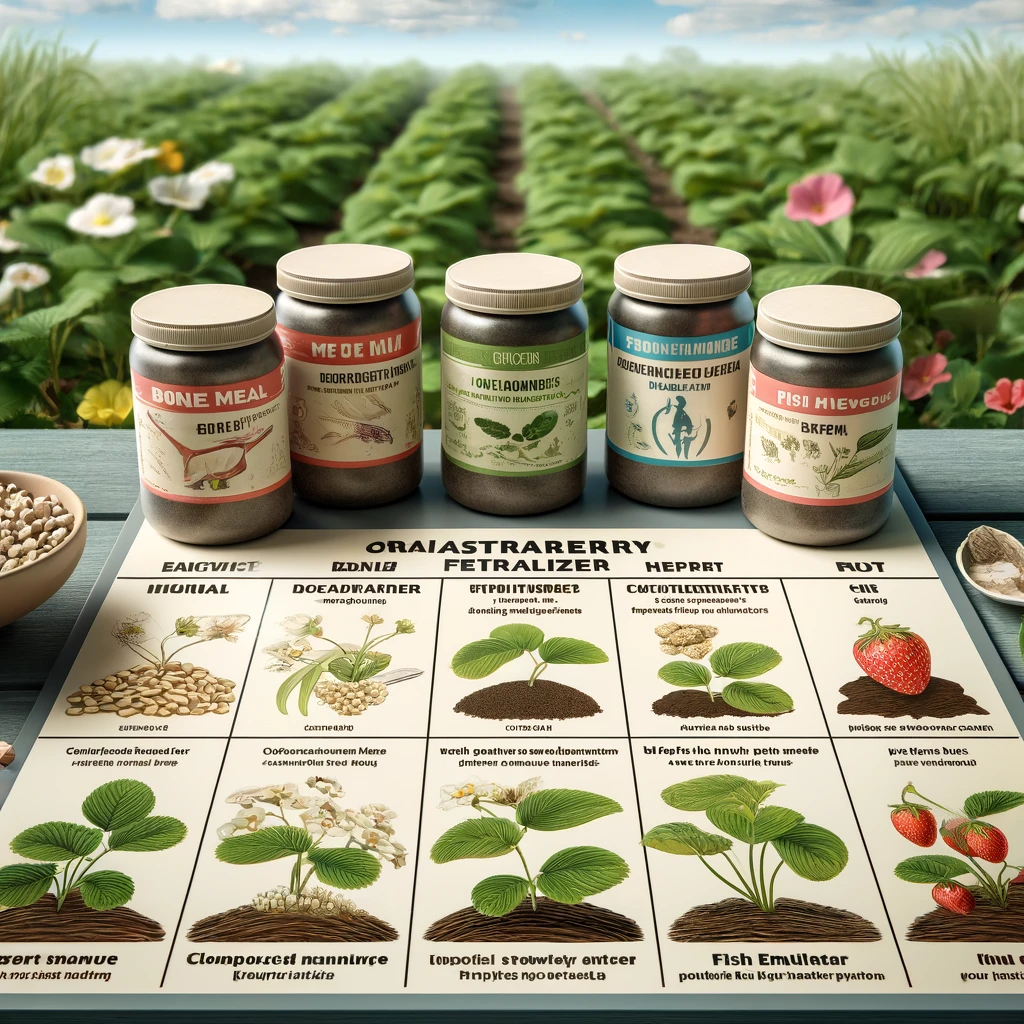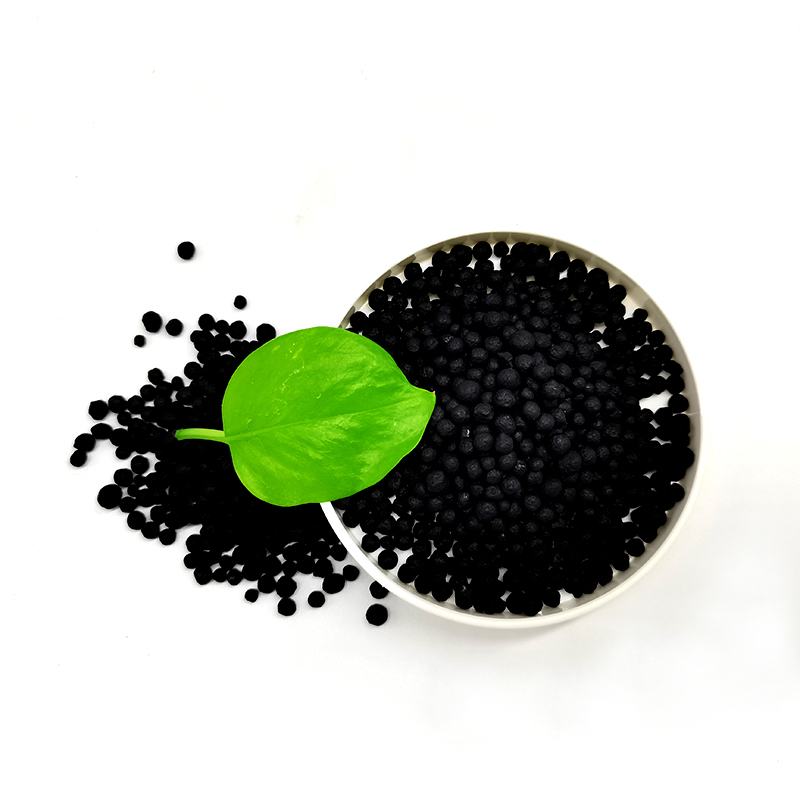Introduction to strawberry fertilizer organic
There’s nothing like a big, juicy strawberry. Warm from the sun, a rush of sweetness across the tongue — not to mention the soft red skin and heart-shaped leaves that make the strawberry a beauty in any garden. Planting and watering strawberries is one thing, but without the right fertilizer organic fertilizer strawberry, you won’t be enjoying those strawberries much.
Organic gardening advocates for the use of fertilizers that actually nourish not only the strawberries but also the soil ecosystem that sustains them. Orgnic fertilizers for your strawberries are derived from various natural sources such as animal waste, compost and other plant-based materials. Unlike synthetic fertilizers, which are produced artificially through a chemical process, organic fertilizers make nutrients available slowly, allowing your strawberry plants to access nutrients at a controlled rate as they develop.
The soil biologist and organic gardening proponent Dr Elaine Ingham nailed it: ‘You are not fertilising the strawberries when you use organic fertilizer. What you are doing is fertilising the soil and that will grow the healthy strawberries.’ Slow release also eliminates the risk of nutrient burn – a problem with many synthetic fertilizers where they create a ‘hot batch’ as the nutrients are released together, which can damage the plant.
Besides, organic fertilizers build soil structure and increase biodiversity in the garden. They slow down runoff and water retention, prevent erosion and do not leach the soil, and therefore have less impact on the environment.
When you explore further into world of strawberry cultivation, the better you comprehend the strategy for organic fertilisation, the more it will not only improve your planting skills, but also make the environment more favourable, which consequently results in the strawberries being as tasty as they are nourishing.
Choosing the Right Organic Strawberry Fertilizer
Once the right strawberry fertilizer organic has been identified then gardeners can start planting strawberries with the help of further products like seed fungicide in order to get the most out of their strawberry patches. There are many elements to keep in mind when picking out an organic fertilizer that will match well with your garden climate.
The particular nutrient content of the fertilizer informs you what your strawberry plants should consume. The N-P-K (nitrogen-phosphorus-potassium) ratio in an organic fertilizer should be corresponding to the kind of strawberry plant you are growing and the stage of its life-cycle. For a young strawberry plant rapidly undergoing vegetative growth, a fertilizer rich in nitrogen acts as a feeding frenzy for leaf and stem development. For a mature strawberry plant, switched on to fruit production, some potassium will supercharge its fruiting.
Soil type can also factor into how responsive different fertilizers are. For example, nutrients can easily leach from sandy soils, requiring more frequent fertilizer applications. Clay soils retain nutrients longer but need amendments to improve aeration and drainage. A soil test can help determine how much of what nutrients the soil requires and guide you to the choice of fertilizer.
Just ask Richard Allen, an organic farmer who has been in the game for over 40 years. Knowing the developmental stage of your crops is an important factor when choosing what fertilizer to use – for young plants, a phosphorus-rich fertilizer promotes vigorous root development vital for healthy growth; as they mature and begin fruiting, switching to one with more potassium will result in better quality fruit.
Indeed, compost is an organic fertilizer that should be used to promote strawberry growth in your garden. It provides all the essential nutrients needed for strawberry plants, while also improving soil structure for your plant’s root. Compost can be produced by home gardeners from kitchen scraps or green cutting from our backyards, making it much more cost effective as well as reduce CO2 emission in the environment.
Rotting manure from livestock such as cows, horses and chickens can also be used as a fertilizer, and is high-nutrient. If not properly composted before use, this manure can burn your plants, so it is important to make sure you rot it properly or you run the risk of introducing pathogens into your garden, too.
But for those who wish to keep things a little simpler, ready made organic blends containing ‘fish, shrimp, bone meal, kelp and absolutely nothing artificial’ and designed to provide a balanced nutrient source for strawberries can be purchased. These ready-made products attempt to remove the guesswork from organic fertilisation.
In summary, choosing an organic strawberry fertilizer that will fit well with your plants and the qualities of your soil requires an understanding of their nutrient needs. Whether you choose homemade compost or aged manure, or even purchase a commercial blend, finding the right fertilizer is key to having a healthy strawberry crop that yields a bountiful harvest.

Best Practices for Applying Organic Strawberry Fertilizer
Organic options for strawberry fertilizer are equally diverse in results and methods. This article describes optimal timing, amount and application strategies so that your strawberries, fertilised with organic richness, grow to their fullest potential with big fruit.
For strawberries, the time for applying organic strawberry fertilizer is crucial, which is early on, just when the plants get established in spring. This gives the plants good root growth and full foliage to carry them well through the season. Another application is warranted during flowering and fruit set, and that’s all that an organic fertilizer for strawberry needs to be applied. As you near harvest, don’t give more fertilizer for strawberries, because you’ve got enough going on in your strawberry plants. Don’t ramp up leaf production at the expense of yield and fruit quality.
How much strawberry fertilizer organic should you apply? That will depend on the nutrient needs of your plants – which depend on the fertility of your soil and the size and age of your plants. With both plants of average vigour and fertile soils, even a moderate application of compost or a balanced organic fertilizer, following product recommendations, should be adequate to satisfy nutrient demands. And periodic soil testing can fine-tune your approach by identifying specific nutrient deficiencies that may need correction, allowing you to apply just the amount of fertilizer that your plants need.
Organic strawberry fertilizer needs to be applied evenly, but carefully; it should not be placed in contact with the stems or leaves, or else this could result in an injury, much like burns. Where granular types of fertilizer are used, incorporating them gently into the top layer of soil can increase their absorption.
When the fertilizer is liquid organic, it can be delivered through a watering can, serving to add nutrients while watering, or by a drip irrigation system that trickles water into the ground. These systems are specifically effective when it comes to adding fertilizers in the best possible way, straight into the root zone.
When applied as part of an overall strawberry agroculture system, strawberry fertilizer organic can make a big difference to the health of your strawberries. Strawberries require regular watering so consider when you will be watering; this will help the fertilizer dissolve so the plants can benefit. Organic mulches such as straw or wood chips can be similarly helpful, both conserving moisture and smothering weeds. If weeds are receiving nutrients, they may take these nutrients away from your strawberries, so weed control is important. Ultimately, despite backyard bush tucker enthusiasts struggling to remove all the bindiis, the organic fertilizer would have proved beneficial for the strawberries.
Applying them to the organic strawberry fertilizers will certainly improve plant health and bearings. Keeping an eye on the plant response and further adjusting your care regime all the time will you can have a thriving strawberry garden not only with high production efficiency but also a systematic environmental-friendly approach by applying the organic fertilizers.
Monitoring and Adjusting Fertilization Techniques
But fertilisation for peak growth and maximum fruit production also encompasses careful plant observation and, if necessary, plan adjustments according to the plant’s condition and soil characteristics. With this knowledge, we can adjust our fertilisation strategies.
The only way to do this is to check in on your strawberry patch often. Generally, lush green growth and dark green leaves indicate plenty of nutrients. If the leaves are yellowing, or dying back, or the plants seem stunted, those are signs that things aren’t going well, or that better strawberry fertilizer organically might be in order. And of course, the best way to tell if your strawberry fertilizer organic regimen is working well is to check in on your crop – is the fruit as plentiful as you’d hoped and healthy in size and quality?
Soil testing is the next essential step in good monitoring. If you do a nutrient baseline in your soil every year, and retest if problems occur, then you have a kind of nutrient prescription that will allow you to adjust your fertilisation practices based on what your own soils and plants need.
Adding more organic matter, such as compost or aged manure, enhances soil structure and nutrient availability, especially in poor or depleted soils. This can increase nutrient availability immediately but also increases the long-term health of the soil ecosystem, promoting microbial activity that assists nutrient uptake.
Fertilising strawberries with strawberry fertilizer organic fertilizer persistently and patiently require attentiveness, adaptability and flexibility. Regularly testing the health of your plants and soil (and fertilising accordingly) will keep your strawberry patch fertile and your plants flourishing. In this way, the quantity and quality of the strawberries you harvest will be maximised – making it all the more satisfying, after your long efforts tending garden and plants.

The Benefits of Organic Fertilization for Strawberries
Using strawberry fertilizer organic will give you a number of advantages not only for the strawberry plants, but also for the environment and the whole philosophy that surrounds gardening. This paragraph will cover the following points why organic fertilizer should be preferred to the synthetic one, referring to the testimonials and case studies on the same subject by experienced growers.
Building structure into the soil is a primary benefit of using strawberry fertilizer organic. Over time, organic fertilizers help to increase the soil organic matter content and this has benefits for soil structure, porosity and water-holding capacity. A well-structured soil develops strong roots, which aid vigorous plant growth and superior fruit production. As our biodynamic soil food web expert Dr Elaine Ingham says: ‘Healthy soil equals healthy plants. Organic fertilizers support a living soil food web. This then supports all our plants.’
Because of the enhanced biological activity brought on by organic fertilizers, biodiversity is increased in the garden. Not only do earthworms and insects abound but so do the beneficial organisms in the soil; bacteria, fungi and others that keep the garden nutrient cycling running healthily. Importantly, healthy biological activity tends to control pests more effectively, so the garden no longer needs chemical pesticides.
Many case studies and testimonials from strawberry farmers who have successfully converted to organic methods support these benefits, such as a co operative of strawberry growers in California that documented a 20 per cent increase in yield after switching to organic fertilisation, along with increased soil health and reduced irrigation needs.
The long-term benefits of using strawberry fertilizer organically go much further than the immediate surroundings of the garden. They are good for the environment in general, good for organic farming and good for healthy organic fruit eaten safely. For the user of horticultural methods in the garden, the benefits are multiple. He feeds healthy plants, and with organic fertilizer, his own particular environement. For the farmer, the bigger picture is even more far-reaching since he contributes to the health of the planet.
Here is a sample list of references you might find useful:
- Ingham, Elaine. “The Science of Organic Fertilizers.” Soil Foodweb Institute. This resource delves into the benefits of organic fertilizers from a microbiological standpoint, explaining how they affect soil health and plant growth.
- California Strawberry Commission. “Organic Strawberry Farming Successes.” This page provides case studies and testimonials from strawberry farmers in California who have successfully transitioned to organic farming methods.
- Garden Organic. “How to Grow Organic Strawberries.” Garden Organic provides practical tips on growing strawberries using organic methods, with a focus on fertilization and soil health.







